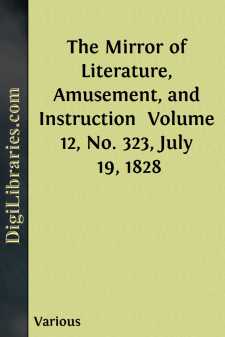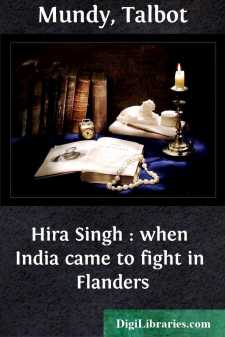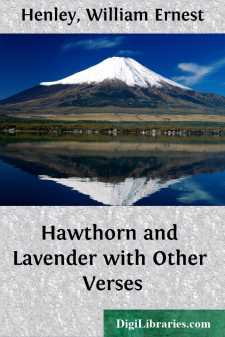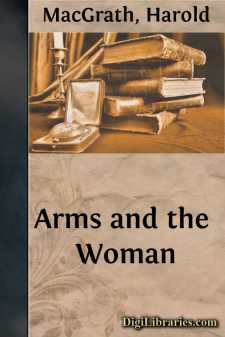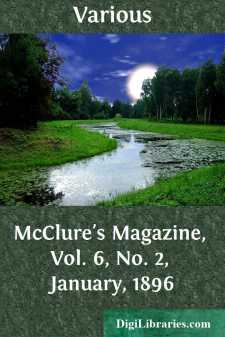Categories
- Antiques & Collectibles 13
- Architecture 36
- Art 48
- Bibles 22
- Biography & Autobiography 813
- Body, Mind & Spirit 142
- Business & Economics 28
- Children's Books 17
- Children's Fiction 14
- Computers 4
- Cooking 94
- Crafts & Hobbies 4
- Drama 346
- Education 46
- Family & Relationships 57
- Fiction 11829
- Games 19
- Gardening 17
- Health & Fitness 34
- History 1377
- House & Home 1
- Humor 147
- Juvenile Fiction 1873
- Juvenile Nonfiction 202
- Language Arts & Disciplines 88
- Law 16
- Literary Collections 686
- Literary Criticism 179
- Mathematics 13
- Medical 41
- Music 40
- Nature 179
- Non-Classifiable 1768
- Performing Arts 7
- Periodicals 1453
- Philosophy 64
- Photography 2
- Poetry 896
- Political Science 203
- Psychology 42
- Reference 154
- Religion 513
- Science 126
- Self-Help 84
- Social Science 81
- Sports & Recreation 34
- Study Aids 3
- Technology & Engineering 59
- Transportation 23
- Travel 463
- True Crime 29
Sort by:
by:
Various
COLOMBIA COLLEGE, NEW-YORK “It is intended that a large academy be erected, capable of containing nine thousand seven hundred and forty-three persons: which, by modest computation, is reckoned to be pretty near the current number of wits in this island,”—Swift’s Tale of a Tub. Instruction, manners, mysteries, and trades. One college is almost completed within her radius, and will be opened in a...
more...
CHAPTER ON BOARD THE "CORMORANT" SLOOP Midway in that period of Ireland's history during which, according to historians, the distressful country had none—to be more precise, on a spring morning early in the eighteenth century, and the reign of George the First, a sloop of about seventy tons burthen was beating up Dingle Bay, in the teeth of a stiff easterly breeze. The sun was two hours...
more...
by:
Cyril Burleigh
CHAPTER I GETTING A MOTOR BOAT "If you are going with the boys on the river, Jack, you will have to get a motor-boat. Won't you let me buy you one?" "No, not a bit of it, Dick." "But you want one?" "Certainly, and I am going to have one." "But motor-boats cost money, Jack. Why, mine cost me——-" "Never mind what it cost, Dick. You spend a lot more...
more...
The Children of the Night For those that never know the light,The darkness is a sullen thing;And they, the Children of the Night,Seem lost in Fortune's winnowing. But some are strong and some are weak, —And there's the story. House and homeAre shut from countless hearts that seekWorld-refuge that will never come. And if there be no other life,And if there be no other chanceTo weigh their...
more...
by:
Talbot Mundy
CHAPTER I Let a man, an arrow, and an answer each go straight. Each is his own witness. God is judge.—EASTERN PROVERB. A Sikh who must have stood about six feet without his turban—and only imagination knows how stately he was with it—loomed out of the violet mist of an Indian morning and scrutinized me with calm brown eyes. His khaki uniform, like two of the medal ribbons on his breast, was new,...
more...
by:
Marah Ellis Ryan
CHAPTER I. Near Moret, in France, where the Seine is formed and flows northward, there lives an old lady named Madame Blanc, who can tell much of the history written here––though it be a history belonging more to American lives than French. She was of the Caron establishment when Judithe first came into the family, and has charge of a home for aged ladies of education and refinement whose means...
more...
1. HAWTHORN AND LAVENDER ENVOY My songs were once of the sunrise: They shouted it over the bar; First-footing the dawns, they flourished, And flamed with the morning star. My songs are now of the sunset: Their brows are touched with light, But their feet are lost in the shadows And wet with the dews of night. Yet for the joy in their making Take them, O fond and true, And for...
more...
by:
Ann Wilson
Unnamed world, 2559 CE Joste was waiting in front of his desk when two guards brought the just-captured human into his office. He found it hard to look at the man without becoming physically ill, and wondered briefly how the guards could tolerate touching him. Well, that was their job; his was to question the man, and he found himself hoping the foul thing would resist, give him an excuse to use force....
more...
by:
Harold MacGrath
CHAPTER I The first time I met her I was a reporter in the embryonic state and she was a girl in short dresses. It was in a garden, surrounded by high red brick walls which were half hidden by clusters of green vines, and at the base of which nestled earth-beds, radiant with roses and poppies and peonies and bushes of lavender lilacs, all spilling their delicate ambrosia on the mild air of passing May....
more...
by:
Various
LINCOLN'S FIRST EXPERIENCES IN ILLINOIS. T was in March, 1830, when Abraham Lincoln was twenty-one years of age, that he moved from Indiana to Macon County, Illinois. He spent his first spring in the new country helping his father settle. In the summer of that year he started out for himself, doing various kinds of rough farm work in the neighborhood until March of 1831, when he went to Sangamon...
more...


